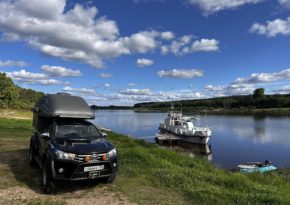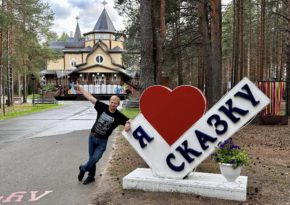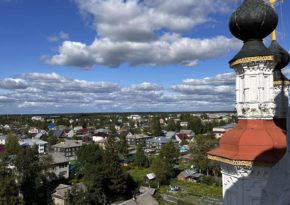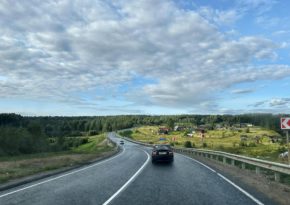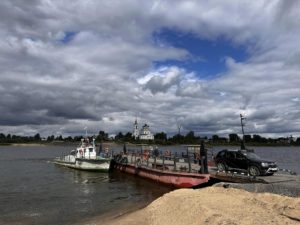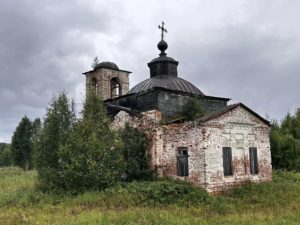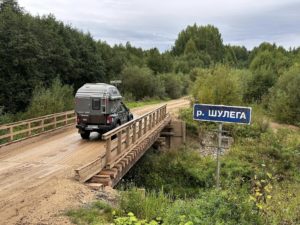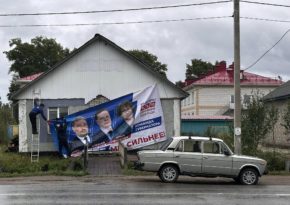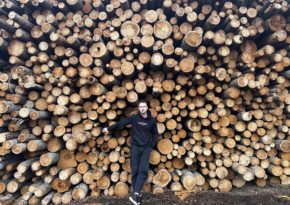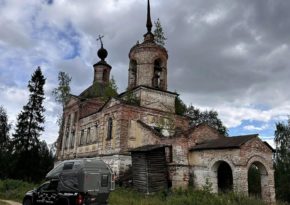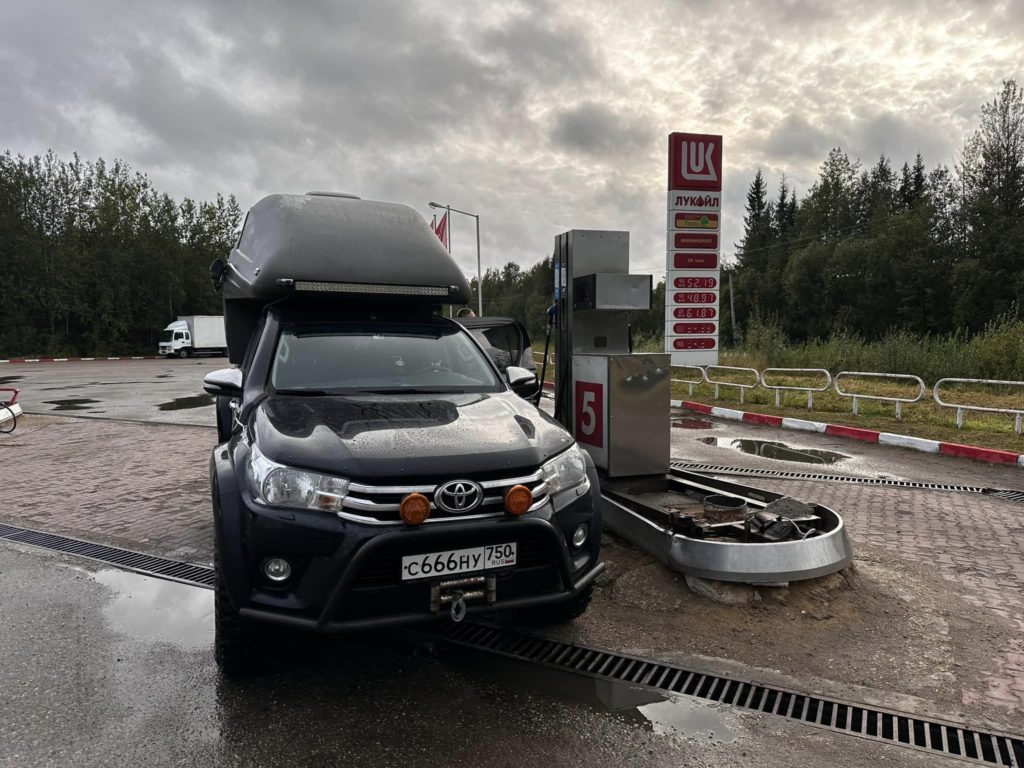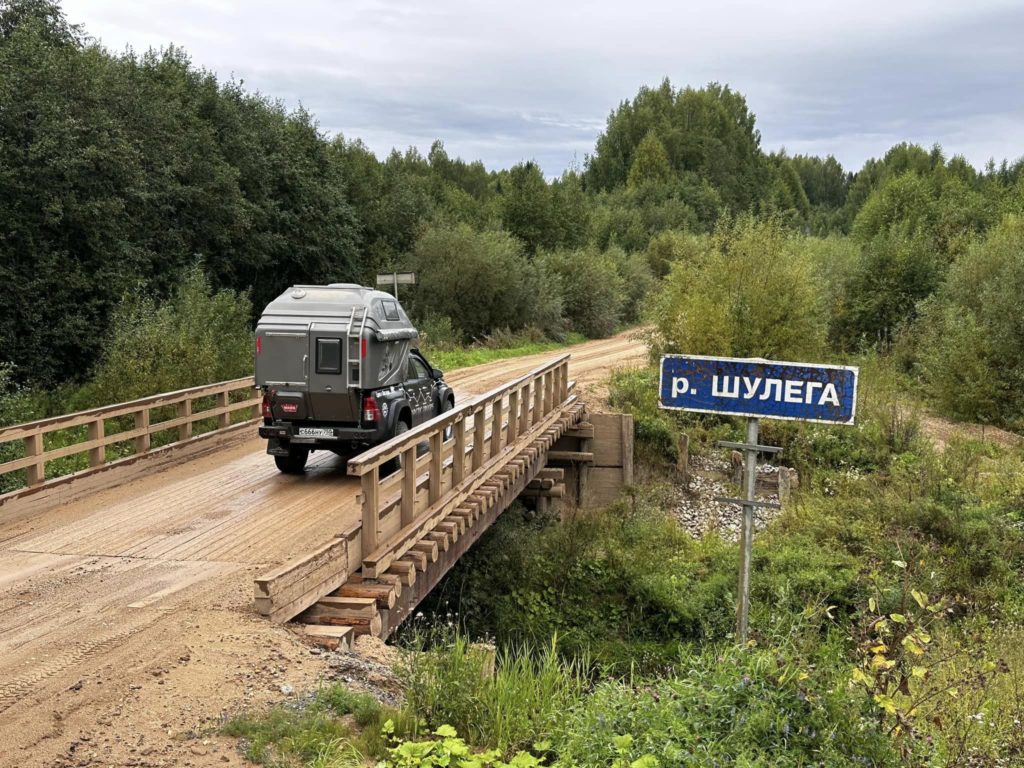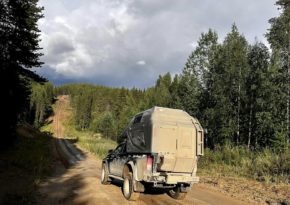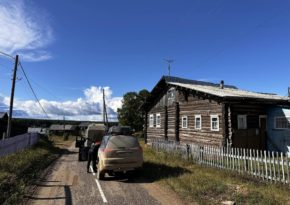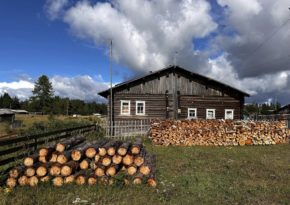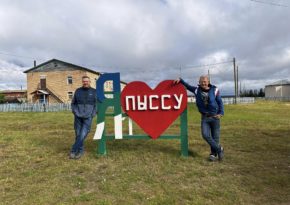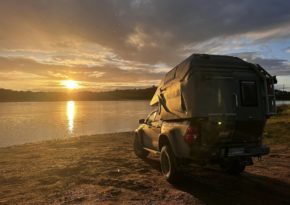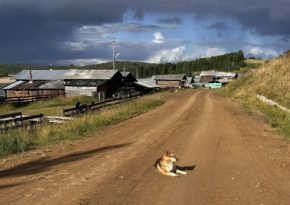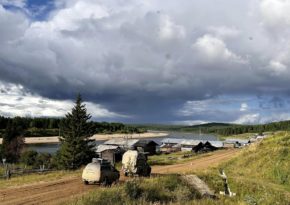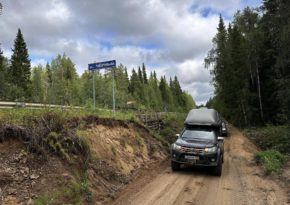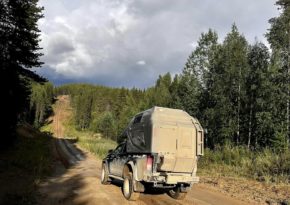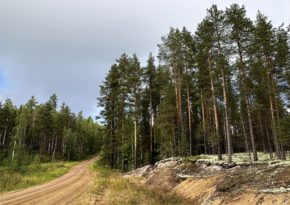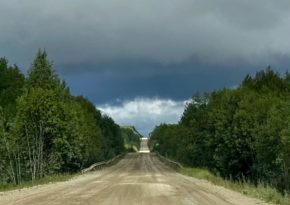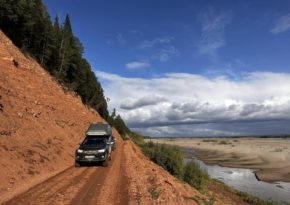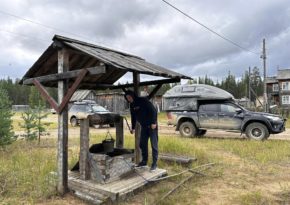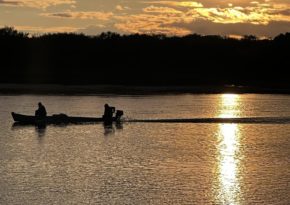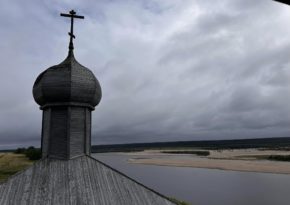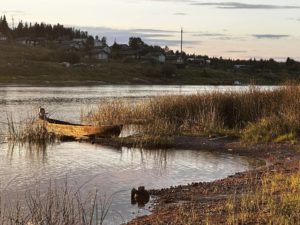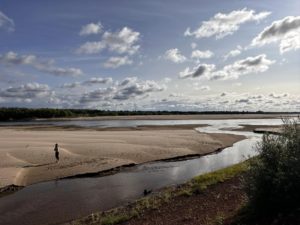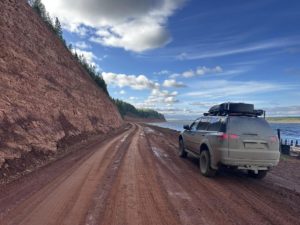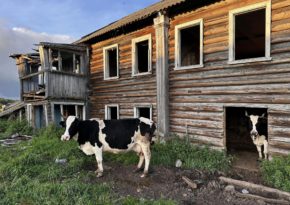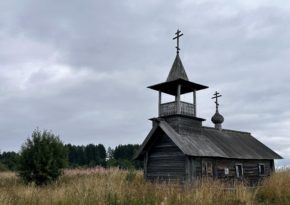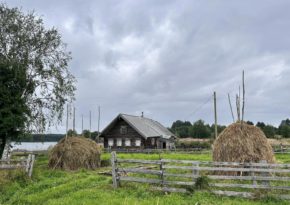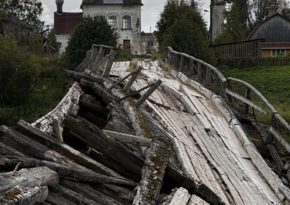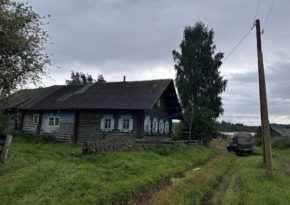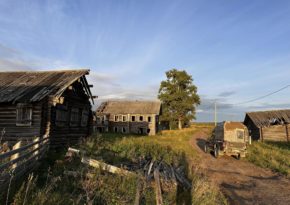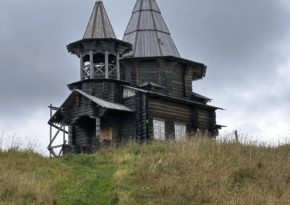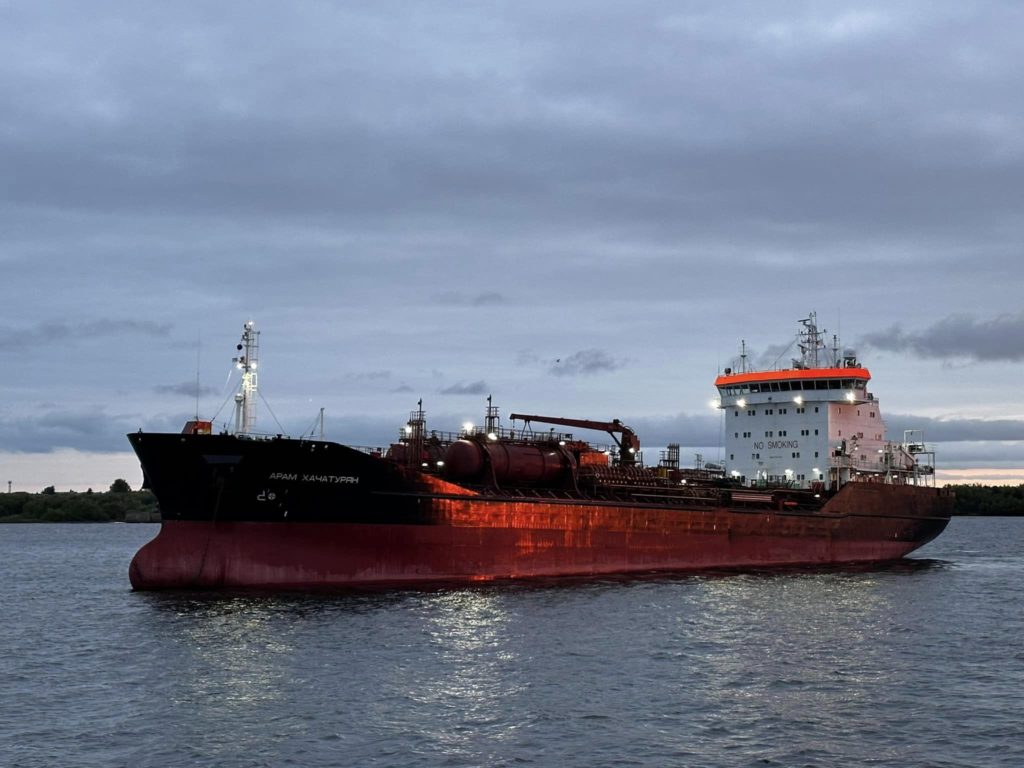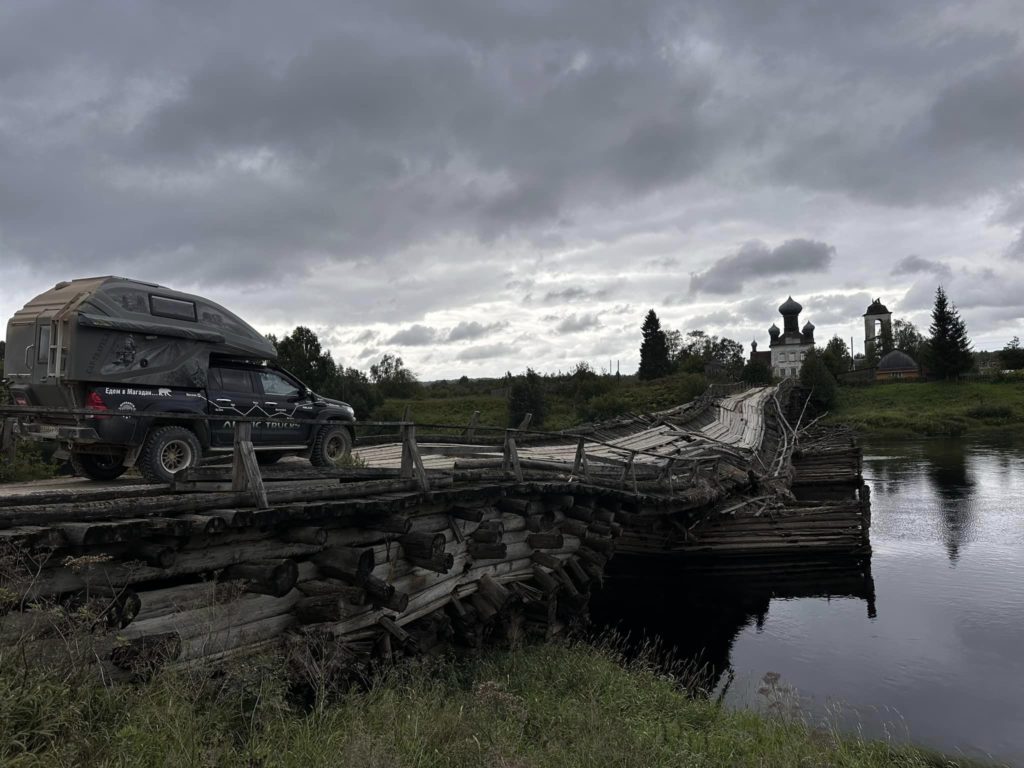"The adequate heroes will always take the bypass".

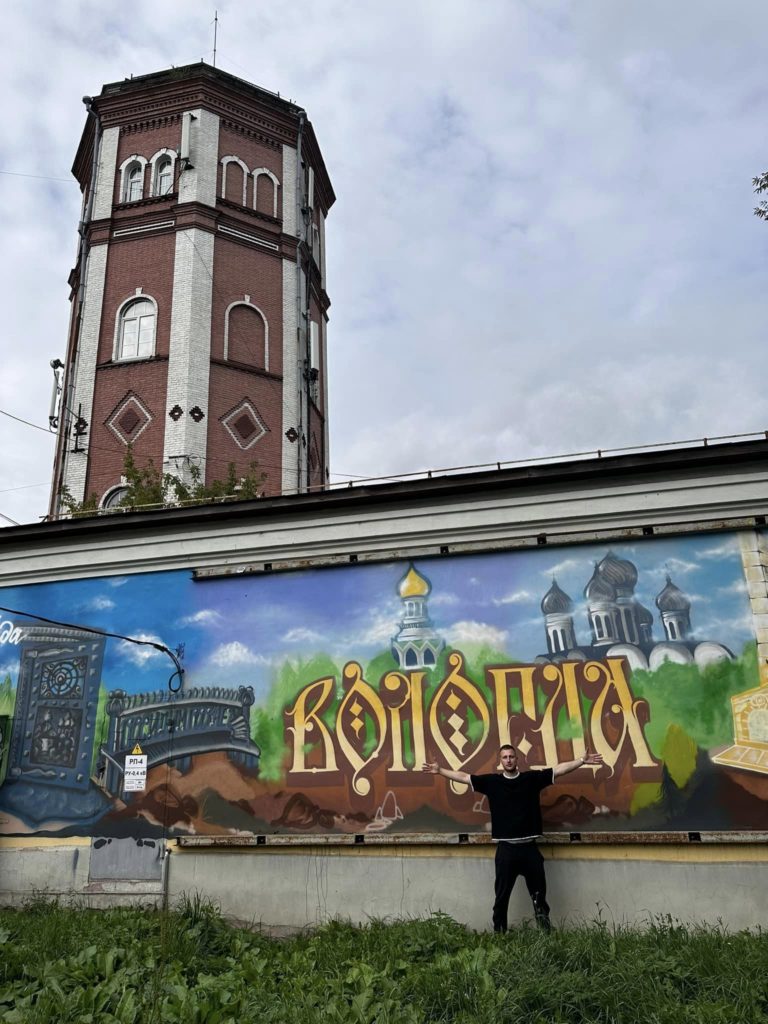
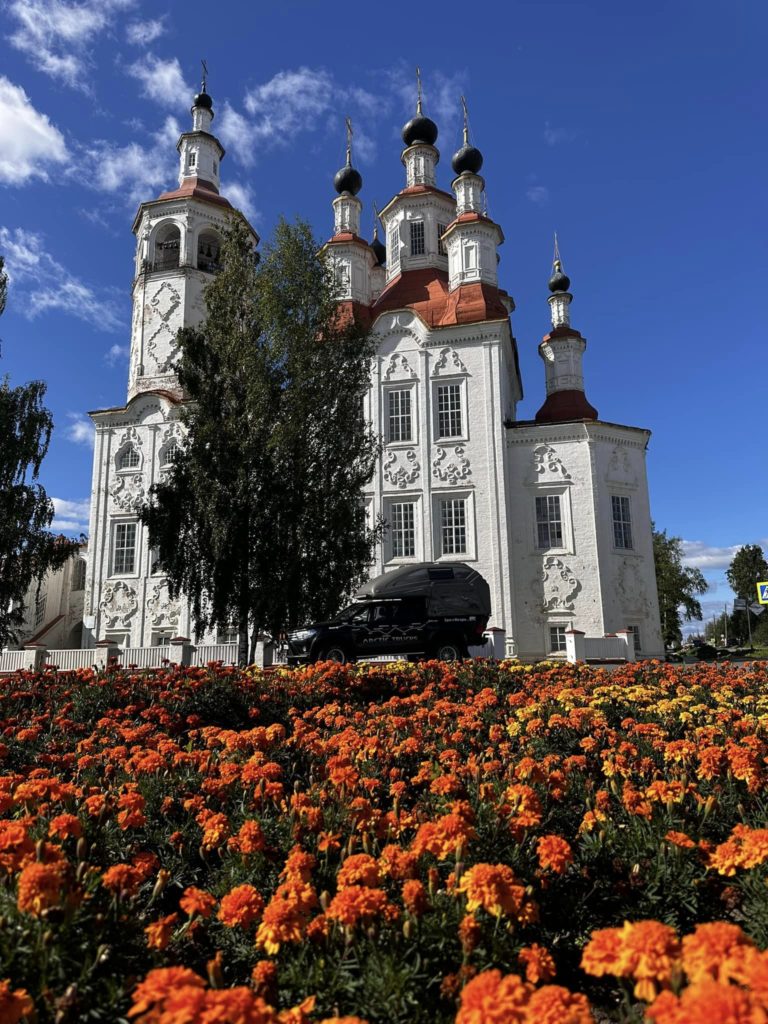
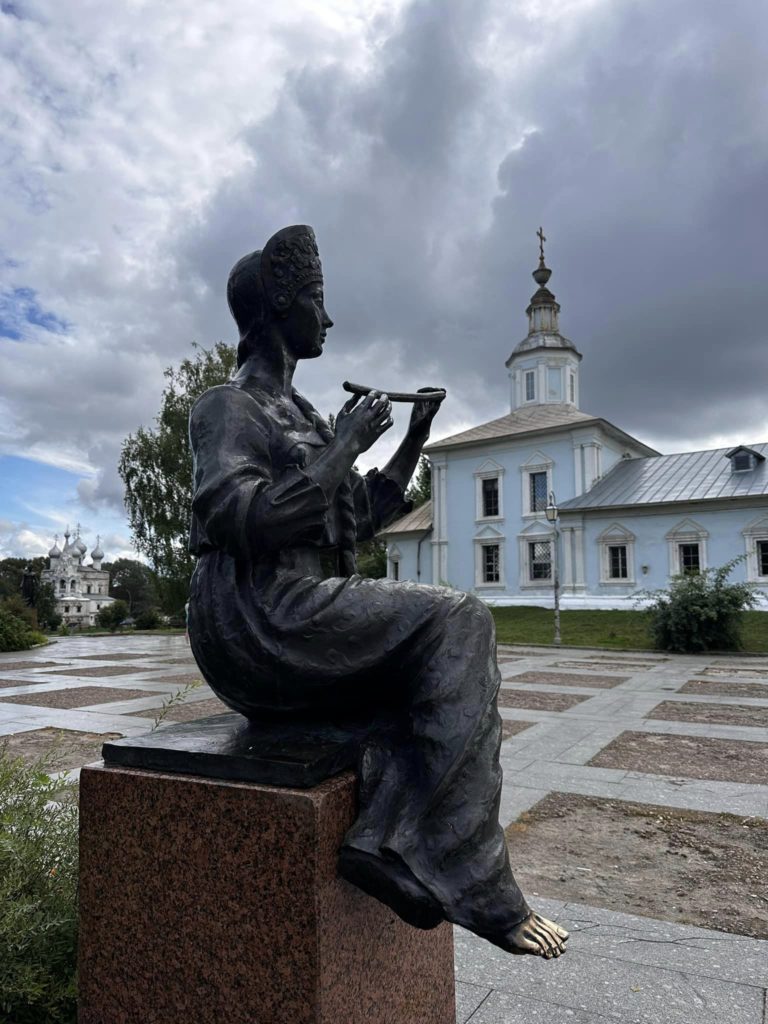
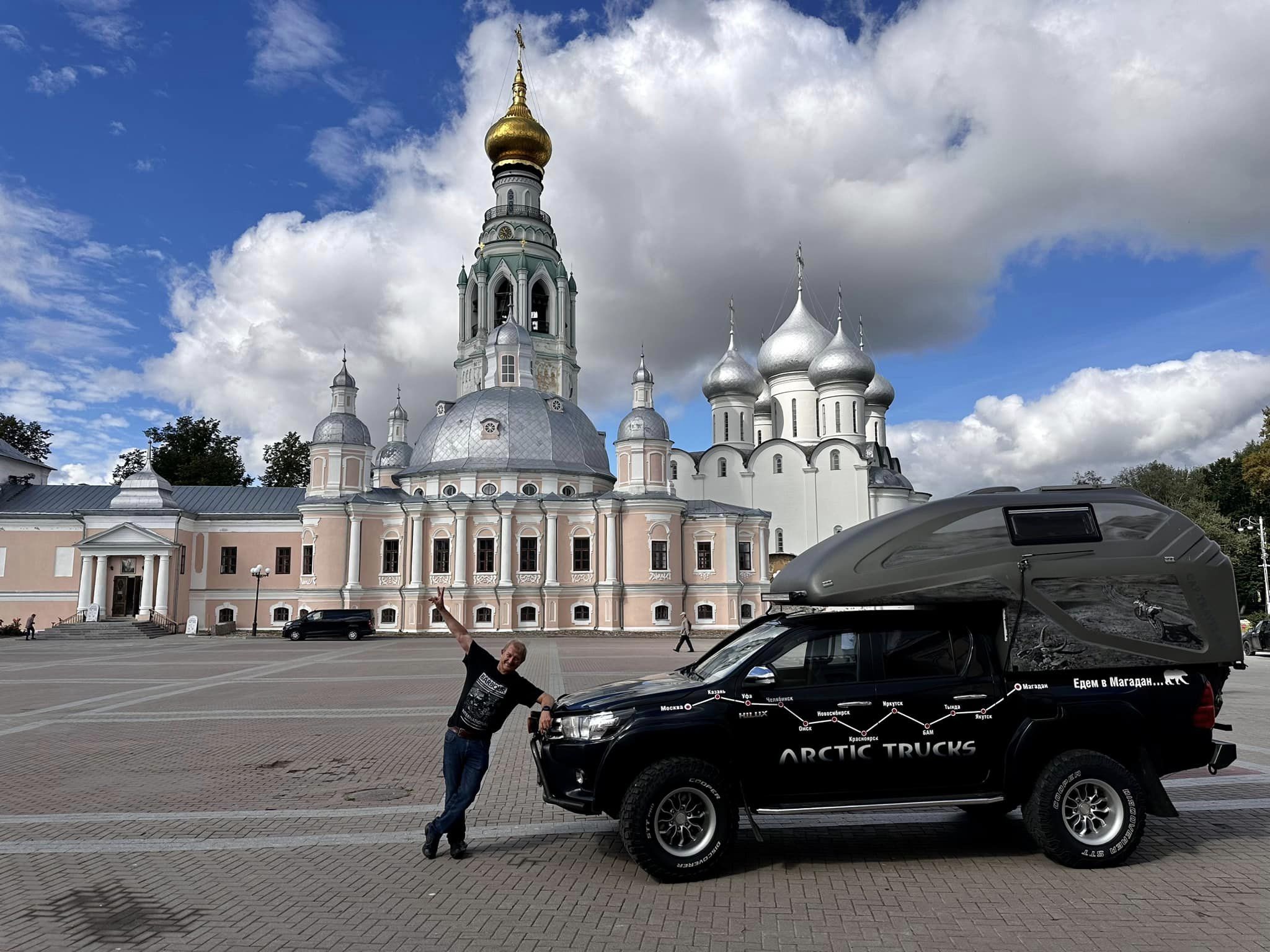
In the morning we left Veliky Ustyug for Kotlas. It took us only an hour and a half to reach the ferry crossing, following quite a decent paved road. (61.321602, 46.92343)
On the high opposite bank of the Vychegda river we saw a snow-white temple and huge white letters, telling us the name of the town: "SOLVYCHEGODSK".
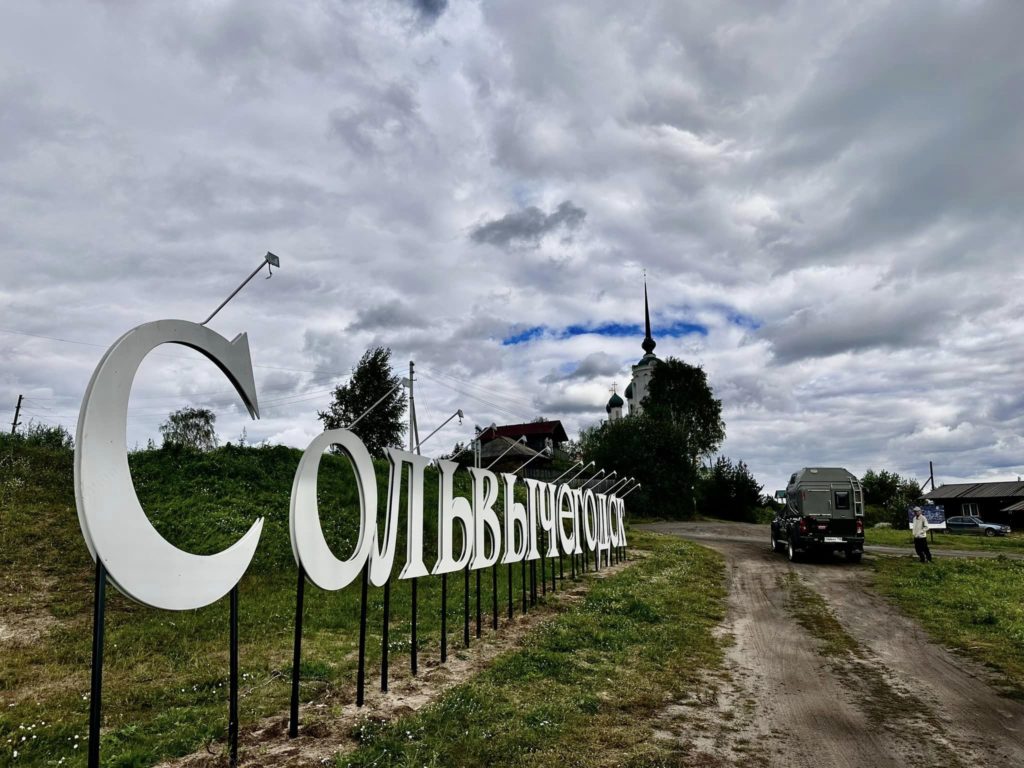
I visited this small town with a rich 500-year historical background three years ago, when I was travelling around Russian North by motorbike.
After Solvychegodsk the asphalt road ends and a good groomed grader one begins. You can drive at a speed of 80-100 km/h, but that will make dust. Now we could rarely face the villages on our way (and a few that we saw consisted of three courtyards with time-blackened huts and dilapidated churches).
We drove another hundred kilometres, having overtaken three logging trucks and faced a couple of cars only. Wooden bridges, rivers with brown water and endless forest make up a typical northern landscape.
In a fairly large settlement called Yarensk (the district centre) we found the only place where we could have lunch. It was a grocery with a small room, two tables in it and a showcase with simple ready meals in plastic containers. The saleswoman kindly warmed up the chops with rice and fried fish with pasta in the microwave for us. I can't say that it was very tasty, but, at least, it wasn't expensive!
I realized that we had crossed the border of the Arkhangelsk region and the Komi Republic only because of the double names of rivers and some settlements (in Russian and Komi language).
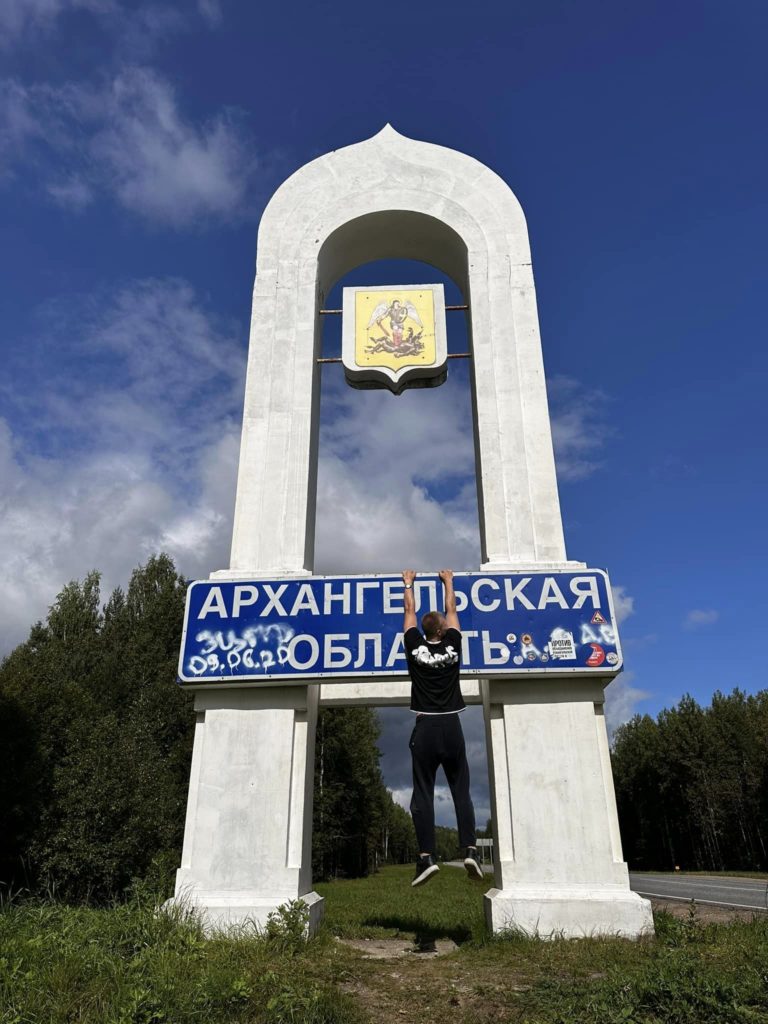
We arrived in Mikun in the evening and quickly found the only one inn near the huge junction railway station, which is considered to be one of the landmarks of the town together with a black locomotive with red wheels standing next to it, the monument to Lenin, the railway museum and the correctional women's colony IK-31.
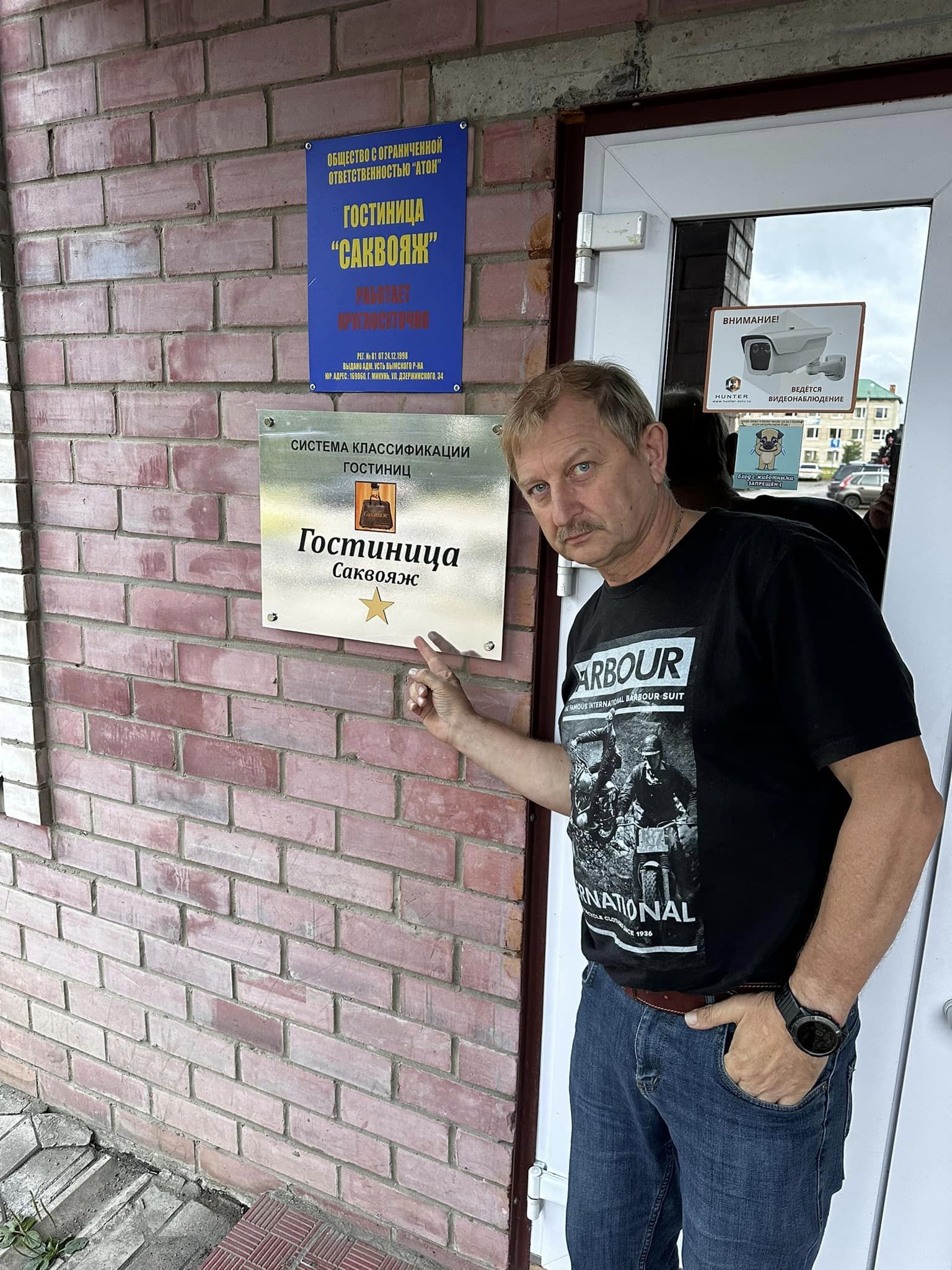
Tomorrow we are going to explore Mikun more and then continue our journey further north.
"If you fall in love with the North, you will never grow cool towards it!" (c)
This is the lyrics of a Russian song.
I have travelled around Russian North many times, winding thousands of kilometres by car, motorbike, ATV and even by snowmobile across its vast expanses. It might seem that hardly would we see something new and unusual.
But the North keeps drawing me. This severe and sparsely populated region has got some inexplicable attractive power.
And the further away from civilization I get into the endless taiga or tundra, the more impressed and delighted I am at the sights I see.
For me the North is like a thick book, a brilliant masterpiece of literature that you can reread all your life, discovering new ideas and meanings, laid down by the author, each time.
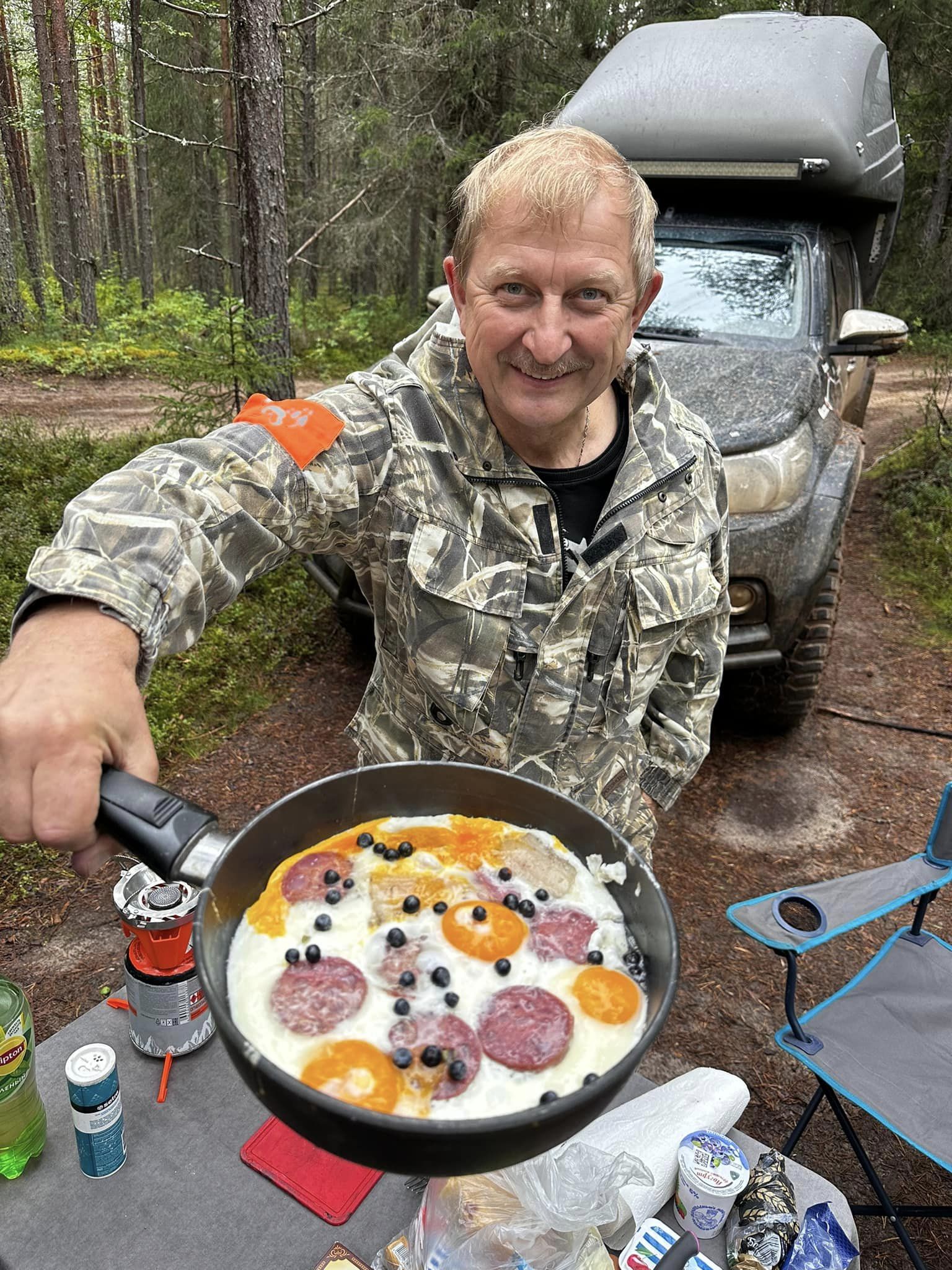
I try to capture the videos and photographs of the brightest moments as well as to keep them in my memory. Thus, watching my gallery afterwards, I will be able to mentally return there and make new plans and routes across the vast and fantastically beautiful Russian North.
Meanwhile, our journey continues!
Arkhangelsk → Severodvinsk → Onega → Kargopol.
Today is the third day we have been travelling across the Arkhangelsk region. How huge it is! Its area is larger than France or Spain, but its population density is lower than in Mongolia. We experienced thousands of kilometres of unpaved roads, which connect rare villages and towns lost in the taiga.
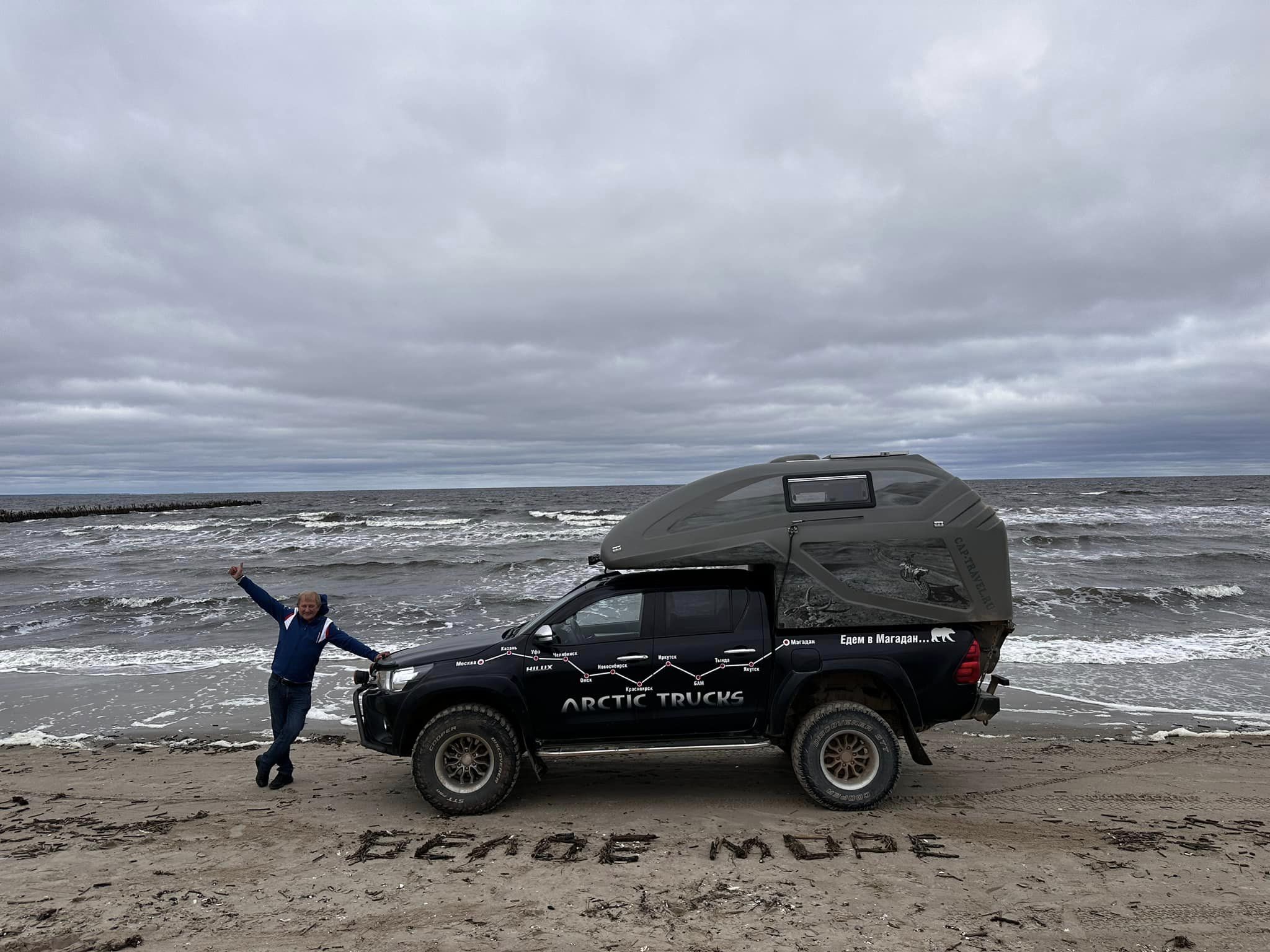
These villages and towns are gradually becoming extinct, unfortunately. The harsh living conditions, unemployment and a lack of modern infrastructure force the youth to leave for large cities. Here only seniors keep settled and live out their lives in the large log houses, which once were beautiful and sturdy but now are decaying and falling apart without proper care.
It would be interesting to go back to the past (like 150 years ago) and follow these roads along the Northern Dvina, Mezen and Onega rivers. That time life was in full swing in each of these villages: in all wooden churches the bells tolled, the axe sound and the saw screeching were heard from everywhere as well as the children's hubbub and laughter, the lowing of cows, the cackling of geese and the barking of dogs.
I don't know what it will take to return this all. Or maybe we don't have to do anything? Everything in this world is born, grows, ages and dies. Many people, villages, cities, states and even entire civilizations have disappeared from the face of the Earth irrevocably in order to give way to a new life…
Or just to sink into oblivion.
 Cap-travel.ru
Cap-travel.ru